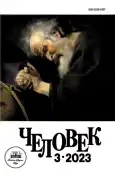Moral Responsibility, Moral Sanctions, and the Value and Normative Content of Morality
- 作者: Prokofyev A.V.1
-
隶属关系:
- RAS Institute of Philosophy
- 期: 卷 34, 编号 3 (2023)
- 页面: 165-182
- 栏目: Symbols. Values. Ideals
- URL: https://journals.rcsi.science/0236-2007/article/view/141398
- DOI: https://doi.org/10.31857/S023620070026104-1
- ID: 141398
全文:
详细
作者简介
Andrey Prokofyev
RAS Institute of Philosophy12/1 Goncharnaya Str., Moscow 109240, Russian Federation
参考
- Кельзен Г. Чистое учение о праве. СПб.: Алеф-Пресс, 2015.
- Милль Дж.С. Утилитаризм. Ростов н/Д.: Донской издательский дом, 2013.
- Прокофьев А.В. Моральная универсальность и феномен сверхобязательных действий // Человек. 2022а. Т. 33, № 4. С. 148–164.
- Прокофьев А.В. Моральные санкции: две традиции понимания // Вестн. РУДН. Сер.: Философия. 2022б. Т. 26, № 2. С. 454–469.
- Харт Г.Л.А. Понятие права. СПб.: Изд-во С.-Петерб. ун-та, 2007.
- Austin J. The Province of Jurisprudence Determined. Cambridge: Cambridge University Press, 1995.
- Darwall S. Honor, History, and Relationship: Essays in Second-Personal Ethics II. Oxford: Oxford University Press, 2013.
- Hart H.L.A. The Concept of Law. Oxford: Clarendon Press, 1994.
- Hieronymi P. Fairness, Sanction, and Condemnation. Oxford Studies in Agency and Responsibility. Vol. 8. Oxford: Oxford University Press, 2021. P. 229–258.
- Mill J.S. Utilitarianism. The Collected Works. Vol. 10. London: Routledge and Kegan Paul, 1969. P. 203–259.
- Nozick R. Philosophical Explanations. Cambridge: Belknap Press, 1983.
- Pufendorf S. On the Law of Nature and Nations. Oxford: Clarendon Press, 1934.
- Scanlon T. Moral Dimensions: Permissibility, Meaning, Blame. Cambridge: Belknap Press, 2008.









